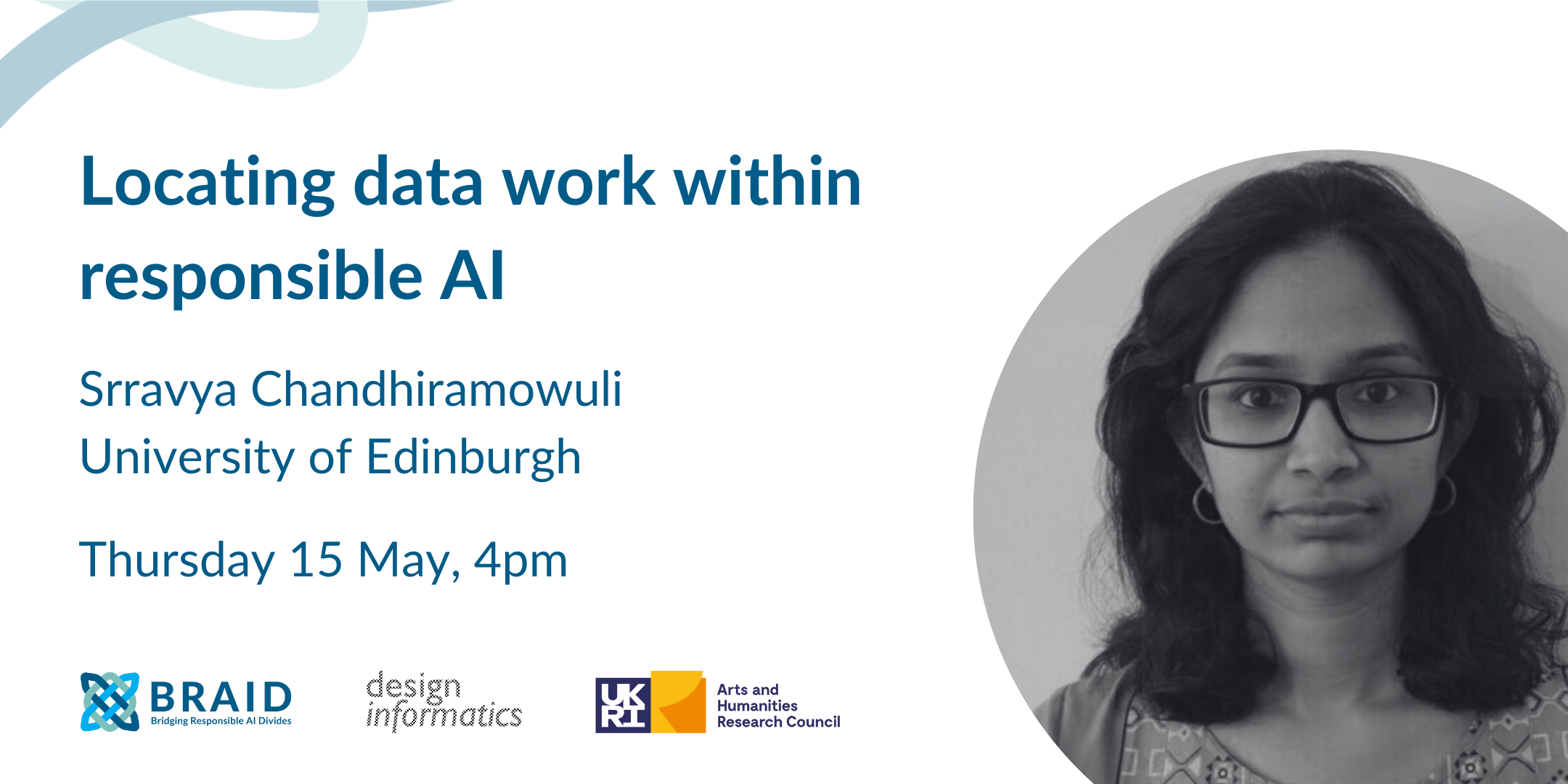
- This event has passed.
‘Responsible AI Futures’ Hybrid Seminar – Srravya Chandhiramowuli
May 15, 2025 @ 4:00 pm - 5:00 pm

Millions of workers, particularly in global south regions, are engaged in creating large-scale annotated datasets used for training and fine-tuning models, as well as making AI work as intended by verifying and correcting its outcomes where required. Yet, there is little recognition, in AI development or governance, of the role of data workers or the challenges they face. In this talk, I bring attention to the contributions as well as concerns arising from data work through ethnographic insights into two data work projects, one in which data work is structured as a repetitive, unitised activity and another which aims to recover data work from such reductive frames using feminist-led, participatory approaches. By tracing the work practices, values and tensions across the two projects, I highlight how data work, including efforts to responsibilize it, is caught within and shaped by the globalised supply chains that prioritise efficiency and expansion. Critically examining data work allows us to confront the scalar logics that underpin dataset (and indeed AI) production and to intervene in them as part of envisioning responsible AI futures.
Bio
Srravya Chandhiramowuli is a PhD candidate in the University of Edinburgh’s Institute for Design Informatics and a PhD affiliate at the Centre for Technomoral Futures. Her research closely follows the on-ground practices of dataset production for AI, bringing particular attention to systemic challenges and frictions in data and AI pipelines. Building on scholarship in Human Computer Interaction (HCI) and Science and Technology Studies (STS), Srravya’s research seeks to contribute towards just and equitable AI futures.
